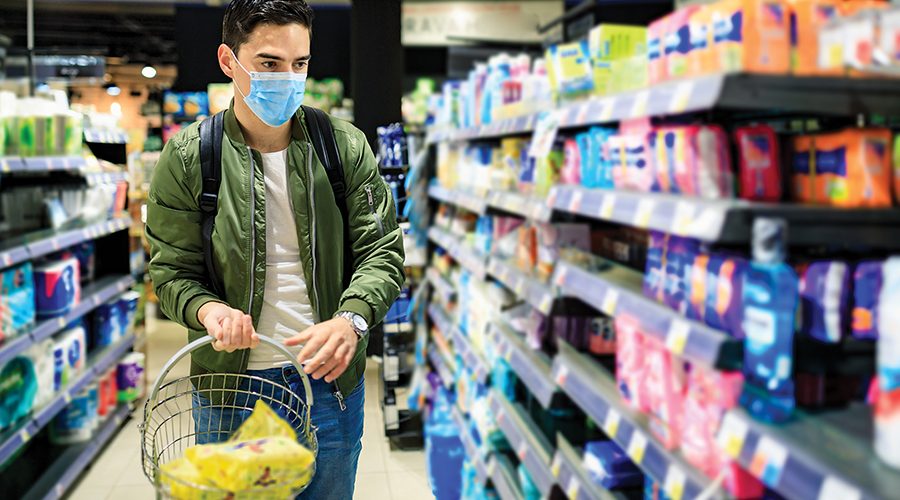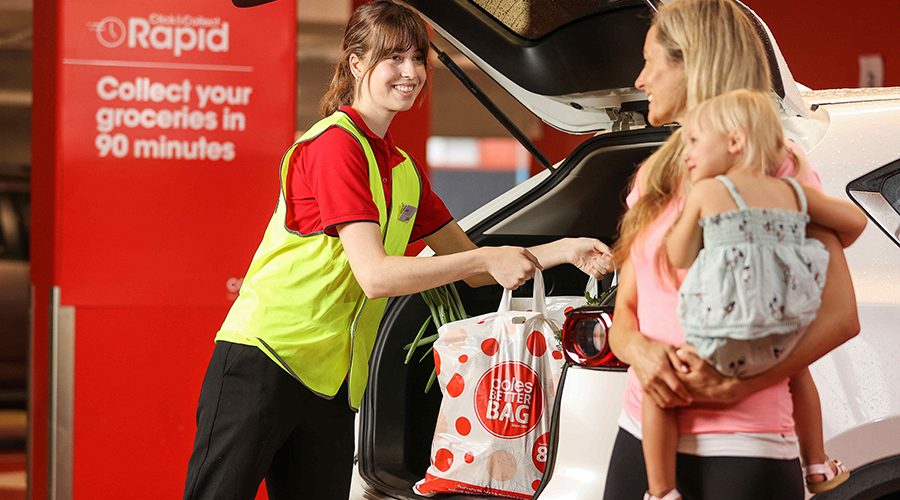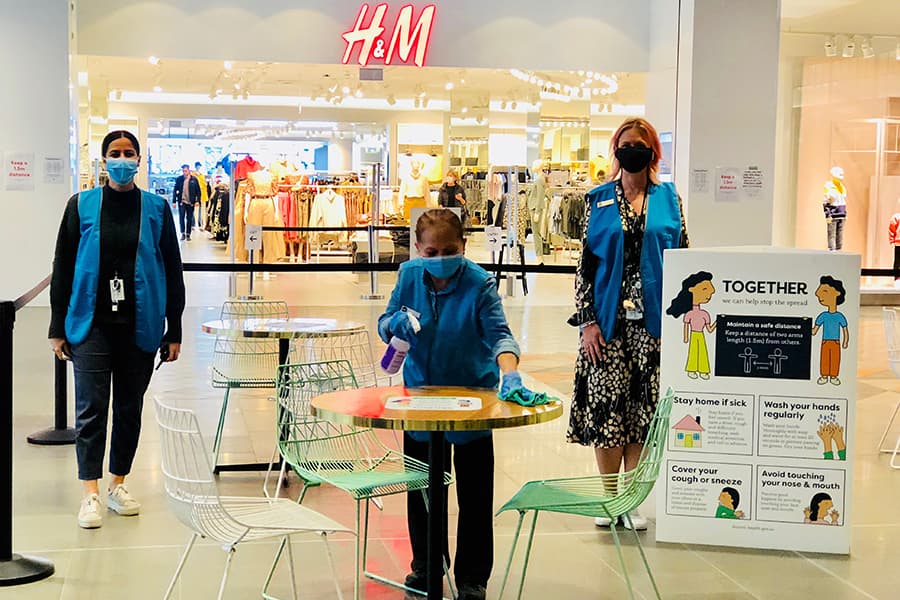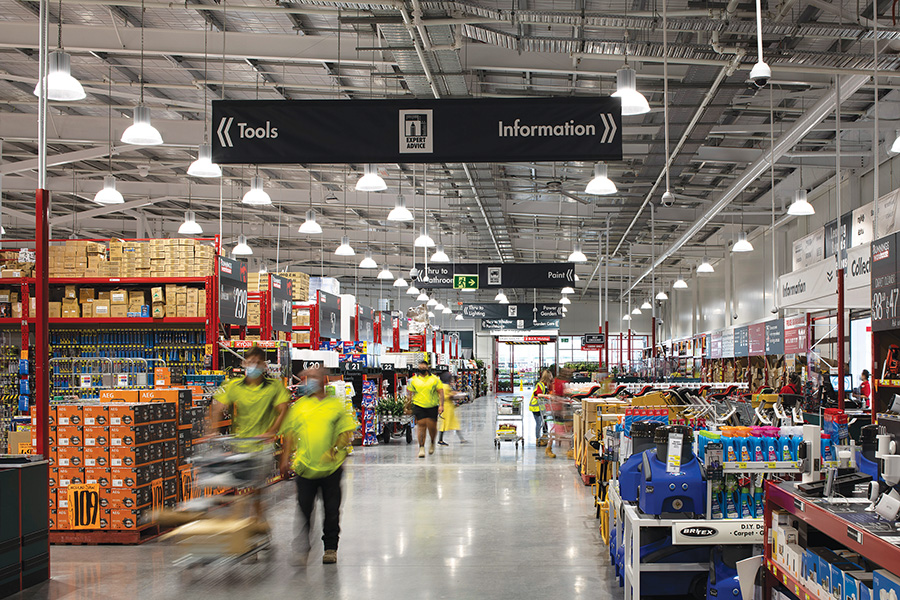Our industry as a whole, represented by the Shopping Centre Council of Australia (SCCA), has performed in an exemplary manner during the COVID-19 period. Shopping centres are the most visited, the most public entities in our societies and, therefore, we have played a leading role in the management of the pandemic. Angus Nardi, Executive Director of the SCCA reflects on the past year…
We’ve been taking stock of industry issues and lessons learned arising from COVID-19.
In a policy, regulatory and political sense, 2020 was a year where, on average, our industry saw shifts in one way or another every second day.
It may not surprise SCN readers that Victoria was the jurisdiction that dominated our advocacy, and the dominant issue nationally was what we’ve defined internally as trading restrictions/operating requirements/enforcement activities. In other words, things that impacted day-to-day shopping centre operations was the leading issue.
This included everything from which retailers can open and who has to close, through to QR codes, face masks, density rules, and site visits from inspectors and regulators. It is an incredibly long and complicated list.
SCN readers may also be interested to know that in 2020, the most common day for government announcements on relevant restrictions was Thursdays and Sundays, and a constant watch was needed on government press conferences. Overall, we’ve had very positive engagement with public health officials across jurisdictions.
It feels like a decade ago, but our early 2020 pandemic engagement included dealing with myths during the Lunar New Year to avoid certain locations, including some SCCA member centres. I recall sitting in a hotel room in Brisbane one evening, and engaging with NSW Health where to their credit, they issued the following day a Media Release titled Be Aware of the Symptoms, Be Wary of False Reports.
NSW Chief Health Officer, Dr Kerry Chant, noted there had been “multiple incorrect and alarmist social media posts…” and that she was “particularly keen to dispel five common myths about the novel coronavirus”; one being that: “You should avoid Chinatown/shopping centres/suburbs with high Chinese-Australian populations.”
Another early engagement related to a question in Federal Parliament on “the legislative mechanisms currently in place to ensure the Morrison Government is able to respond to the coronavirus”.
Attorney-General Christian Porter’s response noted that under the BioSecurity Act, there is “a very important power that may be experienced for the first time”, which was the declaration of a human health response zone which could include restricting people “from attending places where a large number of people may otherwise choose to gather, such as shopping centres…”

Australians still panic-buy at the hint of a lockdown
Early on we also engaged on the so-called ‘panic buying’ phenomenon, for which we joined the Shop Assistant’s Union (SDA) and National Retail Association (NRA) to call out a zero-tolerance approach to customer abuse towards retail workers, noting the union’s ‘No One Deserves a Serve’ campaign. Interestingly, despite repeated pleas from our political and public health leaders, Australians still panic-buy at the hint of a lockdown, which speaks to several issues.
While much time and many issues have passed since then, a key question for now is obviously what does ‘COVID-normal’ look like and what are the opportunities to influence and reduce the risk of future government announcements?
A key overlay for 2021 is the vaccine roll-out, for which the Federal Government released the national strategy in early January and the first vaccinations have now started.
Another key overlay is that overall retail sales enjoyed an incredibly strong year in 2020. In November and December alone, an additional $6+ billion was spent on a YOY basis, and from October onwards Westpac consumer sentiment moved into positive territory and continued to grow.
Already in 2021, we’ve had the tail-end of the Sydney northern beaches lockdown including the mandating of wearing face masks across Greater Sydney; and lockdowns in Greater Brisbane, Perth, Peel and the South-West and Victoria; each with a post-transition period of restrictions that followed.
The nature and timing of these ‘sudden’ lockdowns can have a critical impact. Brisbane’s three-day lockdown was announced on a Friday, Perth’s five-day lockdown on a Sunday and Victoria’s five-day lockdown on a Friday. Including the Sydney Northern Beaches lockdown (announced on a Saturday), the timing provided was fairly incredibly short and following ‘middle of the day’ announcements the commencement of each was 5pm (Sydney), 6pm (Brisbane), 6pm (Perth) and 11:59pm (Victoria) respectively.
Our policy, regulatory and political risks continue in such circumstances, whether it’s a lockdown, ongoing restrictions, changing operating requirements, compliance activities, public health messaging or the mentioning of a retailer or shopping centre as a ‘case location’.
A key to where we’ve had success is where we have deep engagement, effective and trusted relationships, discussion on detail – albeit often with a very small window of opportunity to influence things – and the ultimate ‘proof in the pudding’ that we continue to operate in a COVID-safe manner.

Coles Click and Collect
On this latter point, it’s been lost on some people that our industry has been on the frontline as one of the very few businesses that have remained opened the entire time, deemed as being an essential activity, enabling the community’s safe access to food, pharmacy and other essential goods and services, and operating stably and safely including during times of restrictions, lockdown, ‘panic buying’ through to ‘reopening’ and so-called recovery.
Further, we’ve lived through ongoing inspection, compliance and enforcement activities from key regulators and have come through with flying colours.
It’s something our industry should be very proud of, particularly as we just put our heads down and got on with it, with no pomp and next to no accolades. Our industry has truly demonstrated our intrinsic role in, and value to, the community.
As veteran AFR journalist Robert Harley recently put it, “whatever the outlook, the extraordinary performance of the shopping centre industry through the 2020 pandemic should be acknowledged”.
Further, noting that SCCA members renegotiated 10,000 leases and provided $2 billion in rental assistance, Harley pointed out that “It is hard to think of another industry that did so much to support its customers”.
Let’s flag three key (but not all) experiences and lessons learned that provide a strong basis for addressing future opportunities, particularly in terms of moving forward under ‘COVID normal’.
First, is the SCCA’s members and the industry’s strong foundations. One of the greatest compliments I received during the pandemic is how well-organised we are compared with other industry groups, including our ability to provide ‘detailed, timely and considered advice’. This speaks volumes to the close, ongoing and detailed engagement by all SCCA members on all facets of policy and regulatory issues arising from the pandemic, and their willingness and ability to do so efficiently.
A key to this has been SCCA members taking a proactive, collective and leading approach on COVID-safe operations, again noting that we have remained open throughout the pandemic. This included a ‘Retail Recovery Protocol’ that we jointly developed with the Shop Assistant’s Union (SDA), National Retail Association (NRA), Pharmacy Guild of Australia (PGA) and Australian Retailers Association and released on 1 May 2020. I believe this was ahead of its time, and played a key role in providing community assurance. This was followed by COVID-safe industry plans and guidance on food courts, face masks, kiddie rides and unattended activities (eg. play equipment), Santa photos and a specific focus on safe operations during the Christmas trading period.
Depending on the jurisdiction, we were able to define our own agenda and avoid unnecessary government intervention, get relief from certain requirements or get things re-opened earlier than planned. The lesson learned is that having a deep and trusted approach is an effective method of engagement with governments, versus what I’ve seen from some groups that provide roving media commentary, shout at governments, criticise and offer little by way of considered solutions. Our industry continues to be well-placed in terms of the next phase.
Second, was mobile COVID testing in Victoria. I got a call from a senior government official asking if we’d support testing in our centres, advising that the government wanted to announce it the following day. All relevant SCCA members supported it promptly and without question, and the government announced it the following day, with the first four testing sites being up and running two days later. Despite some teething issues, it was an overall effective partnership between our industry and the Victorian Government, and demonstrates the remarkable willingness and capability our industry has to respond and engage quickly and be a trusted partner with governments.

COVID-19 testing units in centre carparks
We’ve written to the Chief Medical Officer, Professor Paul Kelly, to offer shopping centres to be vaccination hubs, given our role in the community but also related to issues such as the potential for retail workers (Australia’s number one private sector employer) to get vaccinated at or near their work location. It’s a matter we’ve also discussed with the Pharmacy Guild.
Third, has been our industry partnerships. As noted above, the industry came together on some key issues that included our engagement with the SDA and NRA.
One key issue was the SME Code of Conduct. We conceived, led and co-developed the Code with our retailer group partners, including the NRA and PGA, acknowledging that our success is linked to our retailers’ success, but also the desire for a nationally consistent approach. We have a strong track record with industry Codes (eg. Casual Mall Licensing), including on resolving any ‘issues’. It was overall a collegiate approach, despite some robust discussion. The SCCA also sought and received interim ACCC authorisation.
Unfortunately (and there’s several lessons learned or ‘reenforced’ here), the Code became a hot political issue, was copied by others, and led to some inconsistent and over-prescriptive state-by-state regulation that for all the positives, created some unnecessary noise, division, unintended consequences and hang-over issues. Our industry’s support to tenants in the form of rental assistance – at more than $2 billion – is substantial and larger than many government support packages. However, we’ve seen some governments almost ‘claim’ credit for the assistance our industry has provided, as if it was taxpayer funds.
While I’ve kept the above general, I believe that: (1) the industry’s strong foundation; (2) the industry’s capability to partner with governments and (3) industry partnerships will be the pillars to success in future policy and regulatory opportunities in a ‘COVID-normal’ environment.
As the vaccines roll-out, with restrictions generally easing, shopping centre metrics being incredibly strong (e.g. foot traffic) and with recent preliminary ABS retail data suggesting that January 2021 was the strongest January compared with the previous ten (back to January 2011) – with a YOY increase of almost $3 billion – the outlook for 2021 is looking positive.
This article was first published in SCN’s Big Guns 2021 edition





















